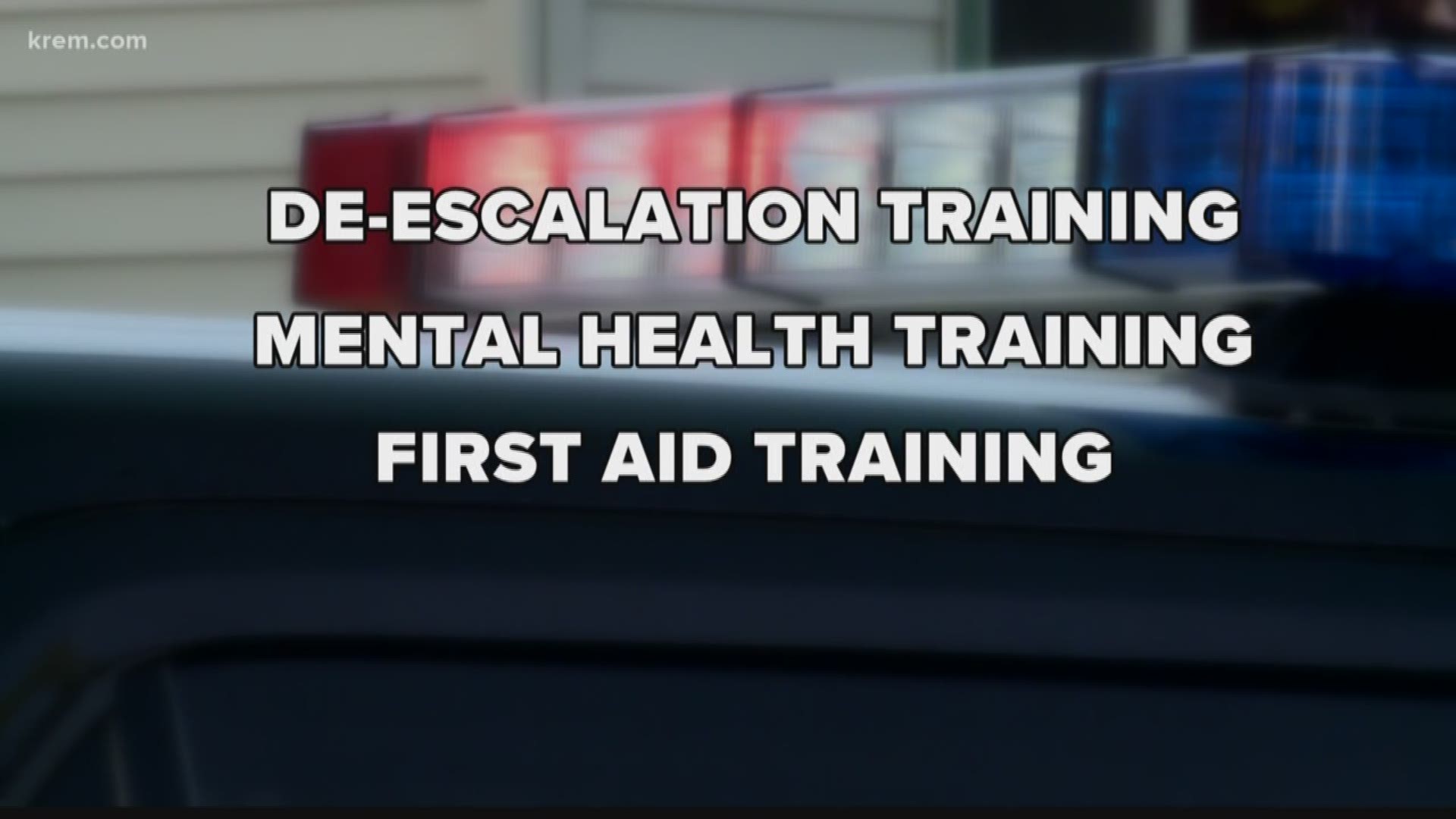SPOKANE, Wash. — Washington voters passed a new law requires de-escalation, mental health and first aid training for police officers. It's meant to address police use of force and how officers are prosecuted.
Initiative 940 was approved with 59 percent of the vote.
Spokane Police Chief Craig Meidl said this new law won’t have any major impacts on the department because Spokane already implements all these areas of training.
“So for us it is that affirmation that what we've been doing is really what the community has been expecting of law enforcement and we've been doing this for years," Meidl said.
There is one minor change the department will see, Meidl said. It now has to report anytime an officer is involved in a shooting with a Native American community member to the Bureau of Indian Affairs in the Governor's office.
While larger police agencies, like Spokane, may not see major changes as a result of I-940, Meidl suggests it could have more of an impact on smaller police agencies.
"Some of the agencies are just struggling to put officers and deputies on the street," Meidl said. "They don't have a large training budget. So now they have this mandate form the state that is now going to require that they meet the initiative. So it's going to create some issues for them in terms of how are they going to meet those requirements."
However, in an email from Pullman Police Chief Gary Jenkins, a much smaller agency, he said his department won’t see many changes either. He said that's because Pullman police already receive this training as well.
Another element to Initiative 940 is how police officers are prosecuted for using deadly force.
Spokane County Prosecutor Larry Haskell said under the new law, prosecutors no longer have to prove absence of malice.
They will have to prove, through a two prong good faith standard test, that the officer objectively believed the act was necessary to protect themselves and others, and subjectively considered it was needed under the circumstances.
"It's potentially easier to prosecute an officer if you can show that they didn't meet both prongs, because the new law requires that both prongs of the good faith standards be met," Haskell said.

